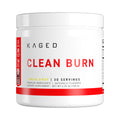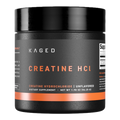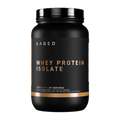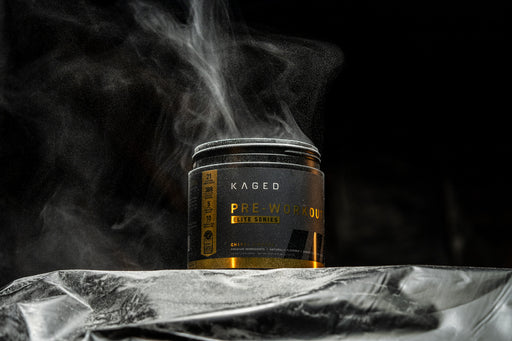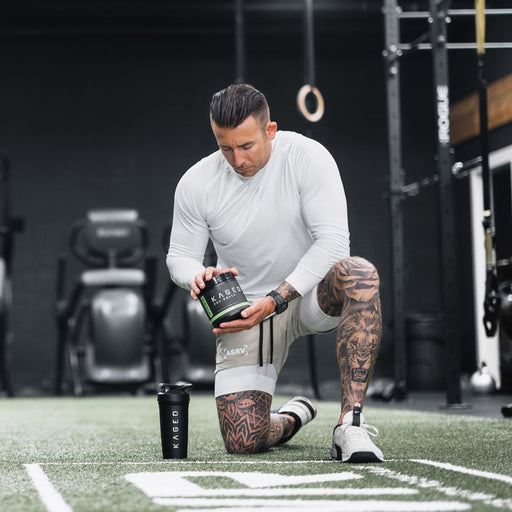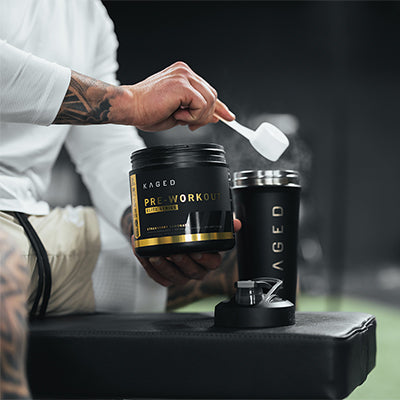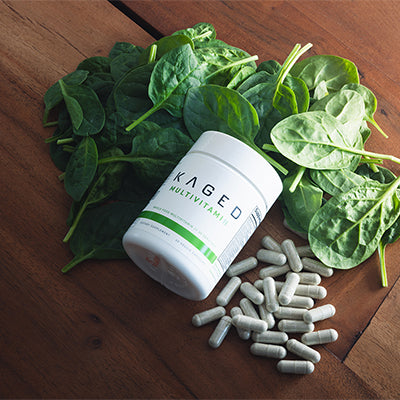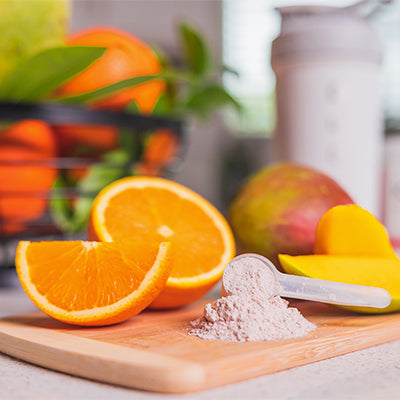Key Points
- CarnoSyn® beta-alanine is one of the most tested sports nutrition ingredients – both in the research lab and on the field.
- CarnoSyn® beta-alanine elevates muscle carnosine levels, which in turn, improves overall muscle performance.
- For beta-alanine to be most effective, researchers recommend supplementing with 3.2 - 6.4g daily.
While there’s a long list of supplements which claim to improve performance, only a select few have been extensively tested both in the lab and on the field. One supplement that fits that bill is beta-alanine, particularly CarnoSyn® the patented version of beta-alanine. CarnoSyn® has been tested in dozens of clinical trials, with most of these studies examining its ability to enhance athletic performance. Vladimir Gulevich, a Russian scientist, was the first person to discover carnosine, beta-alanine, and histidine in the 1900s. However, it was Dr. Roger Harris’ work in the mid-2000s that found that supplementing with beta-alanine led to elevated muscle carnosine levels and improved athletic performance. These findings pushed beta-alanine to the forefront of the sports nutrition market. In the International Olympic Committee’s 2018 consensus statement on dietary supplements, beta-alanine, along with only four other supplements, was listed as a supplement linked to directly improving sports performance.[1]
How Does Beta-Alanine Work?
Beta-alanine is a non-essential amino acid. When combined with histidine, the dipeptide carnosine is formed. Carnosine can act as an intracellular buffer in muscle tissue, working to reduce the acid content of a muscle during exercise. Through its muscle buffering capabilities, carnosine plays a beneficial role in delaying muscle fatigue, increasing physical work capacity, and improving endurance. Beta-alanine is the rate-limiting factor in the production of carnosine, whereby low levels of beta-alanine hinders the body’s ability to produce carnosine. With this knowledge, researchers have focused on the supplementation of beta-alanine in order to elevate muscle carnosine levels, thus improving athletic performance.
Performance Studies: Putting Beta-Alanine to The Test
Research studies using a wide variety of athletes from cyclists, to football players, to rowers, have shown that proper supplementation with beta-alanine can improve performance. Specifically, increased exercise endurance and intensity, and peak work capacity have been found.
A 28-day study on female master cyclists which compared beta-alanine supplementation to a placebo group found support for beta-alanine. Specifically, the group who supplemented with beta-alanine saw an increased peak torque as well as work completed over those athletes in the placebo group.[2] A second study featuring high-level cyclists examined the effect of beta-alanine supplementation on a variety of performance tests. These cyclists took 6.4g of beta-alanine per day for four weeks, and were found to have extended endurance along with improved times in a 4000-m event.[3]
On the field, a group of amateur football players was followed over the course of 12 weeks, where the effects of beta-alanine supplementation on repeated sprint activity were investigated. Athletes were split into placebo and beta-alanine supplemented groups, and their performance of the YoYo IR2 test was measured. The researchers found that the athletes who supplemented with beta-alanine demonstrated improved endurance in team sport-specific exercise capacity with a 34.3% increase in YoYo IR2 performance, in comparison to the placebo group.[4]
Finally, the performance of well-trained rowers was assessed in a 2000-meter time trial while supplementing with beta-alanine. The researchers found that beta-alanine supplementation improved the speed of the rowers by 6.4 seconds in the time trials – a significant improvement for a race time of high-performance athletes.[5]
Who Can Benefit from Beta-Alanine?
Beta-alanine is especially effective for athletes in anaerobic sports and activities, where a high amount of metabolic acidosis occurs in the muscles. Specifically, research has found beta-alanine’s most impressive benefits among athletes like cyclists, rowers, combat athletes, and field sports athletes. Athletes in sports that require high work capacities, like CrossFit, would likely see benefits as well. When it comes to weight lifting, programs which focus on higher rep ranges, or more overall volume than normal, will benefit the most from beta-alanine.
How to Optimally Use SR CarnoSyn®
When dosing beta-alanine, the optimal dosage is between 3.2 - 6.4g per day for improvements in performance. If you’re already taking other Kaged Muscle® products that contain CarnoSyn® beta-alanine, you can stack SR CarnoSyn® to get the total daily amount you need. In order to reap the rewards of beta-alanine, it’s advised to take it daily, even on non-training days. This way, you’ll saturate the cells, which takes approximately 90 – 179g, and ideally should be done over the course of 28 days. A major benefit of SR CarnoSyn® is that the sustained release formula simplifies loading, allowing you to increase muscle carnosine with reduced paresthesia (the tingling sensation associated with beta-alanine).
If you’re ready to start experiencing the many benefits of beta-alanine firsthand, supplementing with SR CarnoSyn® is your answer. This supplement delivers the necessary amino acid to boost carnosine levels in the muscle without the unpleasant side effect normally experienced with high doses of other beta-alanine products. Try putting it to the test and aim for 90 – 179g intake over the next 28 days, and see how your performance improves.
References
[1] Maughan RJ, Burke LM, Dvorak J, et al IOC consensus statement: dietary supplements and the high-performance athlete Br J Sports Med 2018;52:439-455.
[2] Glenn JM, Gray M, Stewart RW Jr, Moyen NE, Kavouras SA, DiBrezzo R, Turner R, Baum JI, Stone MS. Effects of 28-Day Beta-Alanine Supplementation on Isokinetic Exercise Performance and Body Composition in Female Masters Athletes. J Strength Cond Res. 2016 Jan;30(1):200-7. doi: 10.1519/JSC.0000000000001077.
[3] Bellinger PM, Minahan CL. The effect of β-alanine supplementation on cycling time trials of different length. Eur J Sport Sci. 2016 Oct;16(7):829-36.
[4] Saunders, B C, Harris RC, Sale C. β-alanine supplementation improves YoYo intermittent recovery test performance. J Int Soc Sports Nutr. 2012; 9: 39. Published online 2012 August 28. doi: 10.1186/1550-2783-9-39.
[5] Hobson RM, Harris RC, Martin D, Smith P, Macklin B, Gualano B & Sale C. Effect of β-Alanine, with & without Sodium Bicarbonate, on 2000m Rowing Performance. 2013. Intl J Sport Nutrition & Exercise Metabolism. 23: 480-487.

